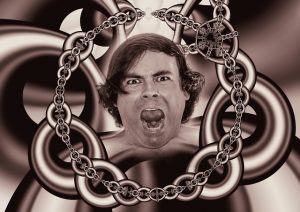Sex Therapy For Sex Addiction
 Almost everyone was exposed to the Tiger Woods sex addiction scandal back in 2009.
Almost everyone was exposed to the Tiger Woods sex addiction scandal back in 2009.
That amazing example of a media circus brought our attention to the fact that yet another well-known so called sex addicted celebrity had been unfaithful to his spouse.
For most of us that might have brought a yawn or maybe perk up our ears a little but beyond that we typically were not so surprised.
It seemed that we were more drawn to that scandal because: A) Tiger Woods presented himself as such a nice family guy and: B) he claimed he was addicted to sex. (Other admitted celebrity sex addicts include: Charlie Sheen, Michael Douglas, Kanye West and Lindsey Lohann, just to name a few).
Although the term sex addict may sound self-serving for a person having sex with someone other than his spouse, there are many who believe that some people cannot help themselves. That is, like someone addicted to heroin or alcohol, Tiger Woods was unable to control his own behavior, at least when it came to having sex outside of his marriage.
Sex therapists are not the only ones asking this central question: Is being compelled by a desire to have sex a lot the same as being addicted to a substance like heroin, cocaine, alcohol or even prescription medication?
What Is Sex Addiction?
From a strict medical perspective an addiction is a compulsive physiological need for and use of a habit-forming substance (such as heroin, nicotine, or alcohol). A person’s system builds a tolerance and, if he suddenly stops using, he has clear negative physiological symptoms which are called withdrawal.
By that definition having excessive amounts of sex is not an addiction because there is no substance being taken. However, in the world of modern sex therapy we have come to view this compulsive behavior as a form of addiction.
The features that make this type of behavior an addiction are that: 1) the individual seems not to be able to control the sexual behavior, and: 2) the sexual behavior has significant harmful consequences and continues despite these consequences. These features are the same for any compulsive or addictive behavior.
What Makes A Sex Addict?
The sex addict typically has not been able to regulate his feelings or moods so he engages in excessive sexual behavior to cope. Often other substances such as alcohol or other drugs are also used to medicate his feelings.
Sex is a type of coping mechanism to soothe or relieve the intensity of those feelings. Along with the actual aberrant behavior, the sex therapist will explore whatever strong psychological components that drive the sexually compulsive person.
The sex addict may be a narcissist totally self-involved and self-absorbed. Or he can be depressed or anxious, unable to manage the emotional forces that drive him. Sex therapy helps the sex addict understand how his moods trigger his compulsive behavior.
Research tends to show that there are more male sex addicts than female.
 Compulsive Behavior Is Habit Forming
Compulsive Behavior Is Habit Forming
Generally the sex addict has very little romantic or love connection to the person with whom he is having sex. He also may not necessarily get a true sense of satisfaction from the sex itself.
He is often disconnected from the more human and social side of the sexual act and more driven by the satisfaction he gets from the stress relief that orgasm brings.
The neurological and biological reinforcement of dopamine and other feel good chemicals being released upon orgasm temporarily calms or soothes the addict. This powerful physiological component keeps him returning to the same behavior over and over again despite the consequences.
A sexually addicted person is often trying to cope with feelings of emptiness, depression or intense anxiety. If he is unable to manage these feelings, he will look for sex to provide relief. This can take the form of masturbation as well as seeking out partners of any type.
When viewed as a highly dysfunctional bad habit, the patient can sometimes better understand how he automatically falls into this behavior. He may experience remorse or regret afterwards but feels unable to stop, like someone who is a compulsive over eater, gambler or drug user.
The goal of sex therapy for the sex addict is to identify the triggers that drive the unwanted feelings and learn to cope more effectively with the urge to act out sexually when he experiences one these triggers.
Treatment may include the use of medication as well as thought and behavior control Cognitive Behavioral Therapy (CBT). The sex therapist can employ similar strategies as is used in treating substance abuse. The sex addict is taught to change automatic negative thoughts that lead to unwanted behaviors.
Behaviors Of A Sex Addict
Unlike a person who may simply enjoy sex and the pleasure it brings, an addict is driven by impulses that are often uncontrollable.
A sex addict will frequently behave in high risk activities putting him and others in jeopardy. Sex therapy for sex addiction encourages the addict to be mindful of these behaviors in advance and to prepare healthier alternatives when the impulse occurs.
What follows is a list of some of those behaviors:
- Infidelity or multiple affairs: It is one thing to have an affair and try to work it out with your spouse by repairing the damage done. It is quite another to be a serial cheater compelled to look for additional sex partners while in a supposedly exclusive relationship with your spouse. Sex therapy can help the hurt partner better understand the real dynamic driving the unfaithful partner.
- Compulsive masturbation: A sex addict may masturbate several times a day to soothe himself or to avoid unwanted feelings. If masturbation is the problem for a married spouse, sex therapy can help him to curb his compulsive behavior before he seeks sex outside the marriage.
- Compulsive pornography viewing: This type of voyeuristic sex was once only available through peep shows and magazines. Nowadays the internet has made pornography easily available. The sex addict can spend hours looking at porn, even at the risk of avoiding work and potentially losing his job.
- Unsafe sex: The sex addict may not think about or even care about the potential for getting a sexually transmitted disease. If he is in a highly agitated state and the opportunity avails itself to him he might have unprotected sex.
- Multiple partners: The sex addict is often self-absorbed and uncaring about the person he is with. Since he is mostly concerned about his emotional state he will look for almost any acceptable sex partner.
- Paying for sex: The sex addict will often pay for sex if he cannot find a willing partner. Some addicts will spend all their money on sex and have been known to go into significant debt to support this habit.
- Strip clubs: This is a form of visual and tactile arousal that keeps the sex addict stimulated. This too is very expensive and can result in dire economic consequences for him and his family.
- Sexual harassment: There are times when a sex addict finds an opportunity at work to come on to an employee or coworker. Despite the obvious danger he will find himself compelled to act out. Depending on his position he may be fired, reprimanded or sued.
- Exploitation of a vulnerable person: The sex addict may have an opportunity to comfort someone who is emotionally vulnerable. This can be a person who has recently broken a relationship, lost a loved one or simply feeling low about a life’s experience. The sex addict becomes a predator, viewing this as an opportunity to strike and take advantage of the weak for self-satisfaction.
- Compulsive lying: The sex addict will often lie about or try to minimize the impact of his behavior on loved ones. Like most addicts he protects his addiction at all costs.
Depending on its severity, sex therapy for sexual addiction or compulsive sexual behavior may include inpatient treatment, medication and ongoing outpatient treatment as well.
Although many may think of sex addiction as a cop out or convenient excuse for a cheater or for someone who likes to have a lot of sex (and there are those who do use this as an excuse), the problem can be a lot more complex. Therefore, each case should be judged on its own merits.
Other articles of interest:
Take the Sexual Addiction Quiz
Do you desire more sex or less sex than your partner
Click here to learn more about sex addiction therapy
About the Author
Dr. Stan Hyman is a licensed psychotherapist, life coach and Board Certified Clinical Sexologist in private practice in Miami, Florida. He works with couples struggling with powerful issues such as infidelity, careers, intimacy and other sexual issues addressing them in a safe, non-judgmental environment. He also specializes in treating addictions and compulsive behaviors (sex addictions, alcoholism, compulsive eating and substance abuse), anger, anxiety, stress, depression and work life balance.
